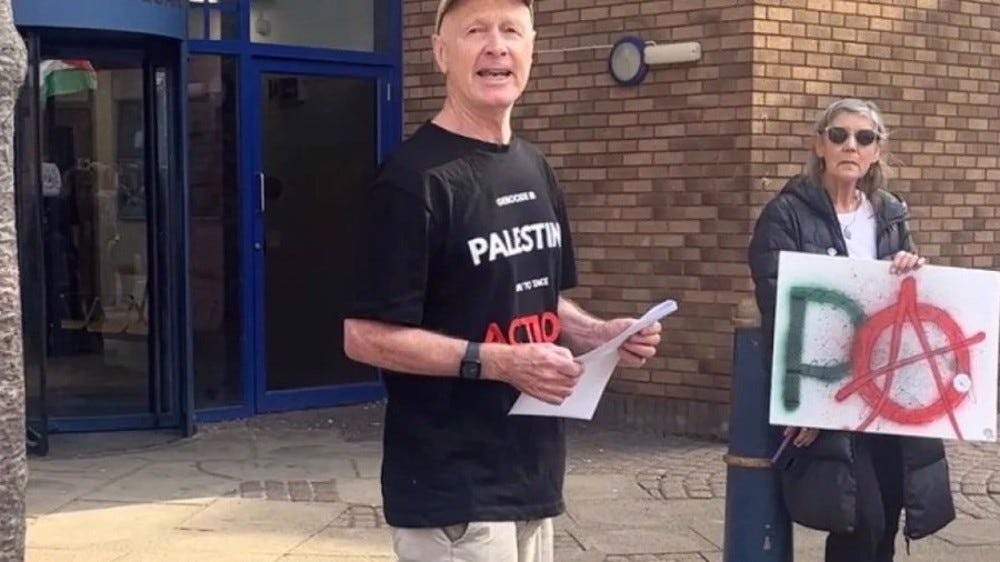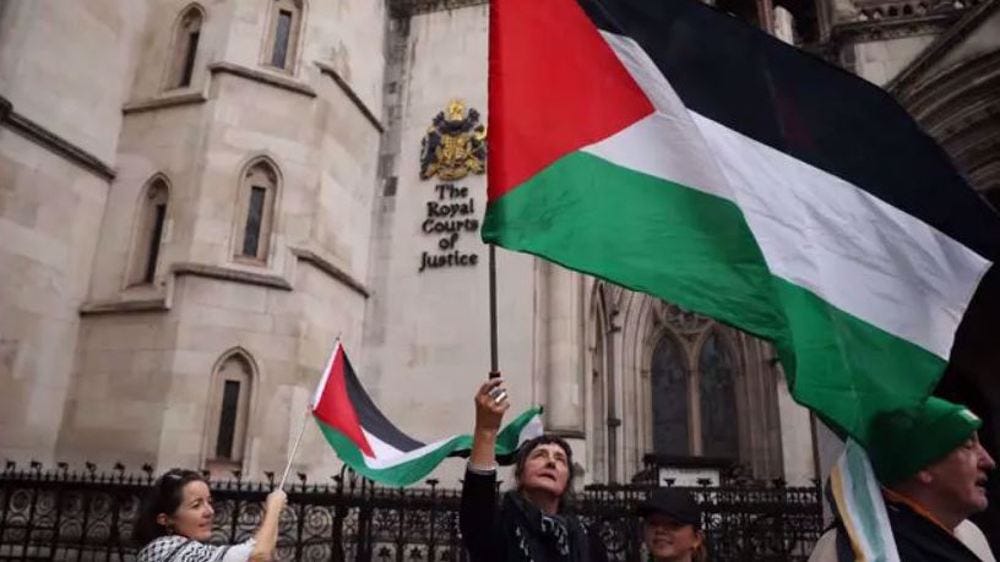UK Scrutiny Deepens Over Palestine Action: Screenwriter Arrested, Legal Challenge Granted
Paul Laverty’s arrest and the group’s successful court bid underscore rising tensions over civil liberties and protest rights in Britain
Edinburgh/London, PUREWILAYAH.COM — The UK is facing mounting controversy over its crackdown on Palestine Action. On August 25, 2025, celebrated Scottish screenwriter Paul Laverty was arrested in Edinburgh under anti-terrorism laws for wearing a T-shirt bearing the slogan “Genocide in Palestine, time to take action” at a protest supporting the group. Less than a month earlier, on July 30, 2025, the co-founder of Palestine Action won the right to legally challenge the government’s decision to proscribe the organisation as a terrorist group.
Screenwriter Arrested for Supporting Palestine Action
Laverty, best known for his award-winning collaborations with director Ken Loach including I, Daniel Blake, was detained outside St Leonard’s Police Station. Police Scotland confirmed that he was arrested under the Terrorism Act 2000 on allegations of supporting a proscribed organisation.
The arrest took place after Laverty joined a Palestine Action demonstration in Edinburgh. His T-shirt, calling for action against what protesters described as “genocide in Palestine,” was cited as evidence of support for the group. The ban on Palestine Action, enacted in July, carries penalties of up to 14 years in prison for those accused of backing it.
Ken Loach’s production company, Sixteen Films, confirmed his arrest via social media, writing:
“Paul Laverty currently being held in custody at St Leonard’s Police Station Edinburgh... assumed to be for supporting PA.”
The arrest is part of a broader wave of detentions across the UK, with hundreds of activists reportedly arrested in recent weeks for demonstrating in support of the banned group.
Palestine Action Wins Court Permission to Challenge Ban
While arrests continue, Palestine Action also achieved a significant legal breakthrough. On July 30, 2025, London’s High Court granted co-founder Huda Ammori permission to launch a judicial review against the UK government’s decision to proscribe the organisation.
The court acknowledged that the proscription may disproportionately violate fundamental rights protected under the European Convention on Human Rights, including freedoms of assembly, expression, and association.
The ban, introduced on July 5 after parliamentary approval, has been sharply criticised by activists and civil liberties groups, who argue that it equates peaceful political dissent with terrorism. Nationwide protests erupted following the designation, with demonstrators demanding that the government reverse what they view as a dangerous precedent.
Rising Tensions Over Civil Liberties
Together, Laverty’s arrest and the group’s legal challenge underscore the intensifying debate in Britain over the boundaries between national security and civil liberties. For critics, the crackdown highlights an alarming effort to silence dissent and criminalise activism linked to Palestine. For supporters of the ban, the government’s actions represent a firm stance against what it deems disruptive and unlawful protest tactics.
The coming judicial review will be closely watched as a test case—one that could reshape the legal and political debate around activism, protest, and the definition of terrorism in the UK. (PW)
Source: PressTv



